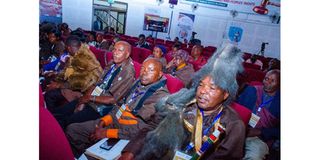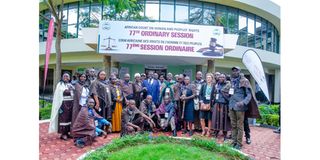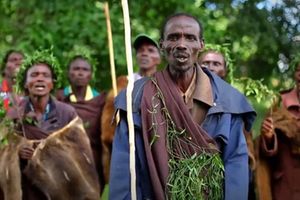
Arusha. The African Court on Human and Peoples’ Rights (AfCHPR) has resumed hearings in the landmark case between Kenya’s Indigenous Ogiek community and the Kenyan government, signalling a new chapter in a protracted legal struggle over ancestral land and cultural rights.
This week’s public hearing in Arusha centres on Application No. 006/2012, which seeks to assess Kenya’s compliance with the Court’s 2017 and 2022 rulings.
The judgments found the state in serious violation of the Ogiek’s human rights, including illegal evictions and the denial of land and cultural access.
The matter also marks the first case presided over by the Court’s new president, Justice Modibo Sacko.
The Ogiek accuse the Kenyan government of failing to implement the Court’s directives, nearly eight years after their legal victory.
Their lawyers argue that key measures—such as land titling, compensation, and formal recognition—remain largely unfulfilled.
The Kenyan government, represented by a four-member legal team led by Charles Mutinda, told the Court that implementation began in 2023.
Mr Mutinda cited the recognition of the Ogiek as an Indigenous community and the launch of consultations on land issues and compensation.
“This process is complex and time-consuming. We are identifying beneficiaries and surveying land for formal titling,” he said.
He added that compensation mechanisms were under review, as rushed implementation could fuel perceptions of bias among other communities.
Kenya’s strained economic conditions, Mr Mutinda further explained, made the swift disbursement of funds difficult.
“We ask the Court to allow time for internal procedures. Precedents must be managed carefully,” he said.
On land matters, he said inter-agency consultations were underway but cautioned against allocating the entire Mau Forest to the Ogiek, citing Kenya’s international obligations to protect ecosystems that support transboundary water sources, such as Lake Victoria.
In response, Ogiek lawyers Bahame Nyanduga and Don Deya urged the Court to impose sanctions on Kenya for non-compliance.
They accused the state of continuing to displace Ogiek families, obstruct cultural and economic rights, and failing even to publish the Court’s rulings in official platforms.
“Not a single notice has been issued through a gazette or government outlet. Instead, we see continued marginalisation, arrests, and restrictions on worship in sacred forest areas,” said Mr Nyanduga.
Deya added that while the state claimed surveys were underway, other communities were being allowed to occupy and cultivate areas of the Mau Forest, worsening the Ogiek’s dispossession.
The legal team called for an independent committee to verify Kenya’s implementation claims and for responsible officials to be held accountable.
They also requested a halt to all development activity in the Mau Forest until full compliance is achieved.

Court Vice President, Justice Chafika Bensaoula, pressed the Kenyan delegation on the delayed publication of the rulings and demanded a definitive timeline for implementation.
In response, the legal team said consultations were ongoing and that the publication process had begun, with the ruling expected to be released “shortly.”
President Sacko adjourned proceedings, stating that further directions would be issued in due course.
Outside the courtroom, the Ogiek Peoples’ Development Program, Programme Director, Mr Daniel Kobei, expressed frustration at the prolonged delays.
“Over 700 people have been evicted under harsh conditions. Eight years have passed without meaningful progress. We are not here for show—we are here for justice,” he said.
The African Court assumed jurisdiction in 2012 after the African Commission referred the matter.
In 2017, the Court found Kenya guilty of violating the Ogiek’s rights through forced evictions, denial of access to natural resources, and failure to recognise their Indigenous status.
In 2022, the Court ordered Kenya to pay Sh157.85 million in compensation and to formally title Ogiek ancestral land. However, implementation remains slow and contested.
The Mau Forest, covering over 400,000 hectares, is home to about 20,000 Ogiek. In 2009, the community was served with a 30-day eviction notice, prompting the legal battle that continues to this day.

